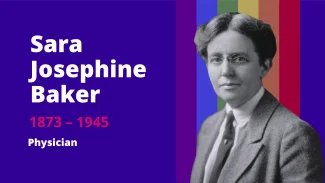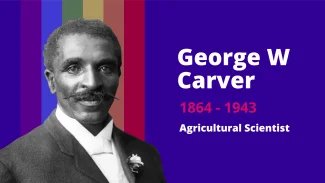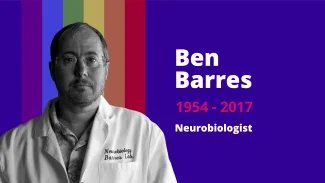Devni, your LGBTQ+ Officer has written the following blog for Pride 2023. Head to @imperial_lgbtq on Instagram to keep up to date with Devni and the LGBTQ+ Network!
Pride Month is a time for the LGBTQ+ community to come together to commemorate the progress we've made, honour the struggles we've faced along the way, and reaffirm our commitment to cultivating a more inclusive and accepting society. While the concept of Pride month, to some, may conjure images of parades, flags, and rainbow logos, it's important to remember it is so much more.
The first Pride was a riot. An uprising against systematic oppression and violence against LGBTQ+ people simply trying to be their authentic selves. Transgender women of colour were at the forefront of it all, valiantly initiating and leading the resistance against the police. So while its beautiful to revel in how far we've come, by acknowledging our history, we can make sure Pride month remains a celebration grounded in resilience, resistance and a collective pursuit of equality for all.
In the spirit of acknowledging our history, you may have spotted the banners we've put up in the Beit Quad celebrating several notable LGBTQ+ individuals who have made significant contributions to science:

Alan Turing was a brilliant mathematician and computer scientist, and played a pivotal role in shaping the world of modern computing. His pioneering code-breaking work during World War II significantly contributed to the Allies' victory. His ground-breaking concept of the "Turing machine" laid the foundation for the development of computer science and artificial intelligence.
While Turing's scientific achievements are widely recognized, it is important to note his queerness and the challenges he faced due to societal prejudices. Turing was gay at a time when homosexuality was criminalized in the UK. In 1952, he was prosecuted and subjected to chemical castration as an alternative to imprisonment. Tragically, he died by suicide in 1954, at the age of 41.
Turing's legacy extends far beyond his scientific contributions. His life stands as a poignant reminder of the injustices faced by LGBTQ+ people and the immense loss to society when queer voices are silenced. In 2013, over six decades after his death, Turing was posthumously pardoned by the British government, recognizing the immense injustice inflicted upon him. His story serves as a stark reminder of the importance of inclusivity, acceptance, and equal treatment for all individuals, regardless of their sexual orientation.

Sara Josephine Baker was a prominent figure in public health and medicine, known for her significant contributions and dedication to improving healthcare and sanitation practices during the early 20th century in America. She made outstanding advancements in the field, particularly in combating infectious diseases and promoting child welfare.
Dr. Baker's work as a physician in New York City during the early 1900s had a substantial impact on reducing infant mortality rates. Through innovative strategies and comprehensive public health campaigns, she effectively educated mothers on hygiene practices and ensured accessible healthcare for underprivileged communities. Her actions were estimated to have prevented the deaths of 90,000 children. She is also credited for helping to locate, catch and quarantine ‘Typhoid Mary’, the infamous cook, who was thought to have caused much of the typhoid outbreak in New York.
While details about Dr. Baker's personal life are limited, she had a long-term companion whom she lived - Ida Alexa Wylie, who was a well-known writer at the time.
Sara Josephine Baker's expertise and dedication contributed to international efforts in improving healthcare systems and promoting preventive medicine. She remains an influential figure in the field of public health, inspiring generations of healthcare professionals. Her commitment to serving marginalized communities and her contributions to child welfare and infectious disease control continue to shape modern healthcare practices and underscore the importance of equitable healthcare access for all.

George Washington Carver, an agricultural scientist, botanist, and inventor, made revolutionary contributions to the field of agriculture during a time of significant challenges for African Americans in the United States. He is widely recognized for his research on crop rotation and innovative uses for peanuts and sweet potatoes, which revolutionized Southern agriculture.
Born into slavery, Carver's unwavering determination led him to become the first African American to earn a Bachelor's degree from Iowa State University, and the first African American faculty member at the college. Carver's research and experimentation focused on sustainable farming practices and finding alternative applications for crops. His advocacy for crop diversification and introduction of methods like rotating cotton with nutrient-rich legumes, such as peanuts, aimed to enhance soil fertility and empower farmers.
Historians have suggested that Carver may have been bisexual, though as he lived in a time where it would have been incredibly dangerous for a queer person of colour to be out, this cannot be confirmed.
In addition to his scientific work, Carver was a renowned educator and influential figure within the African American community. He emphasized the importance of education and self-sufficiency, empowering farmers with knowledge and promoting sustainable practices.
George Washington Carver's pioneering research, innovations, and commitment to improving the lives of farmers and marginalized communities continue to inspire scientists and advocates today. His legacy serves as a powerful reminder of the transformative potential of scientific inquiry, the resilience of African American pioneers, and the ability to effect positive change even in the face of adversity.

Ben Barres was a neuroscientist known for his innovative research on glial cells (the most numerous cells of the brain) and their implications in neurodegenerative diseases. His work revolutionized our understanding of the brain, challenging existing paradigms and contributing to advances in the field of neuroscience.
Barres' investigations focused on unravelling the multifaceted roles of glial cells in brain development, function, and diseases like multiple sclerosis and Alzheimer's disease. By shedding light on the significance of these previously overlooked cells, once thought of as merely taking up space, with no particular purpose, Barres significantly expanded our knowledge of the complex workings of the brain.
Apart from his scientific contributions, Barres was a vocal advocate for gender equality and inclusivity in academia. As a transgender man, he personally experienced the biases and challenges faced by women and transgender individuals in the scientific community. Barres actively championed for greater representation and fair treatment of women and non-gender conforming scientists, working towards creating more inclusive environments for scientists from diverse backgrounds.
Tragically, Barres passed away in 2017 from pancreatic cancer. He left behind a lasting legacy as a brilliant scientist and advocate for change. His profound contributions to the field of neuroscience, combined with his commitment to equity, continue to inspire scientists and drive progress towards a more inclusive scientific community.
The life and work of Ben Barres exemplify the transformative power of scientific exploration, as well as the importance of promoting diversity and equal opportunities in academia. His legacy serves as a reminder of the immense impact that scientists can have beyond their research, shaping a more inclusive and equitable scientific landscape for generations to come.
